Starting a personal safety consulting side hustle can be an exciting way to leverage your expertise and earn additional income.
If you have experience in risk assessment, emergency preparedness, or workplace safety, you might find this venture particularly rewarding.
You can help individuals and businesses create safer environments while building a flexible career on your own terms.
This side gig allows you to tap into a growing market as more people and organizations prioritize safety in their daily lives and operations.
Whether you’re looking to supplement your current job or transition into full-time consulting, the field of personal safety offers numerous opportunities.
Your services could range from conducting home security assessments to developing safety protocols for small businesses.
As you embark on this journey, you’ll need to define your niche, establish your credibility, and market your services effectively.
With dedication and the right approach, you can build a thriving consultancy that not only provides financial benefits but also contributes to the well-being of your clients and community.
Key Takeaways
- Personal safety consulting can be a lucrative side hustle for those with relevant experience
- You can offer a variety of services tailored to individual and business safety needs
- Building a strong professional image and network is crucial for success in this field
Exploring the Side Hustle Concept
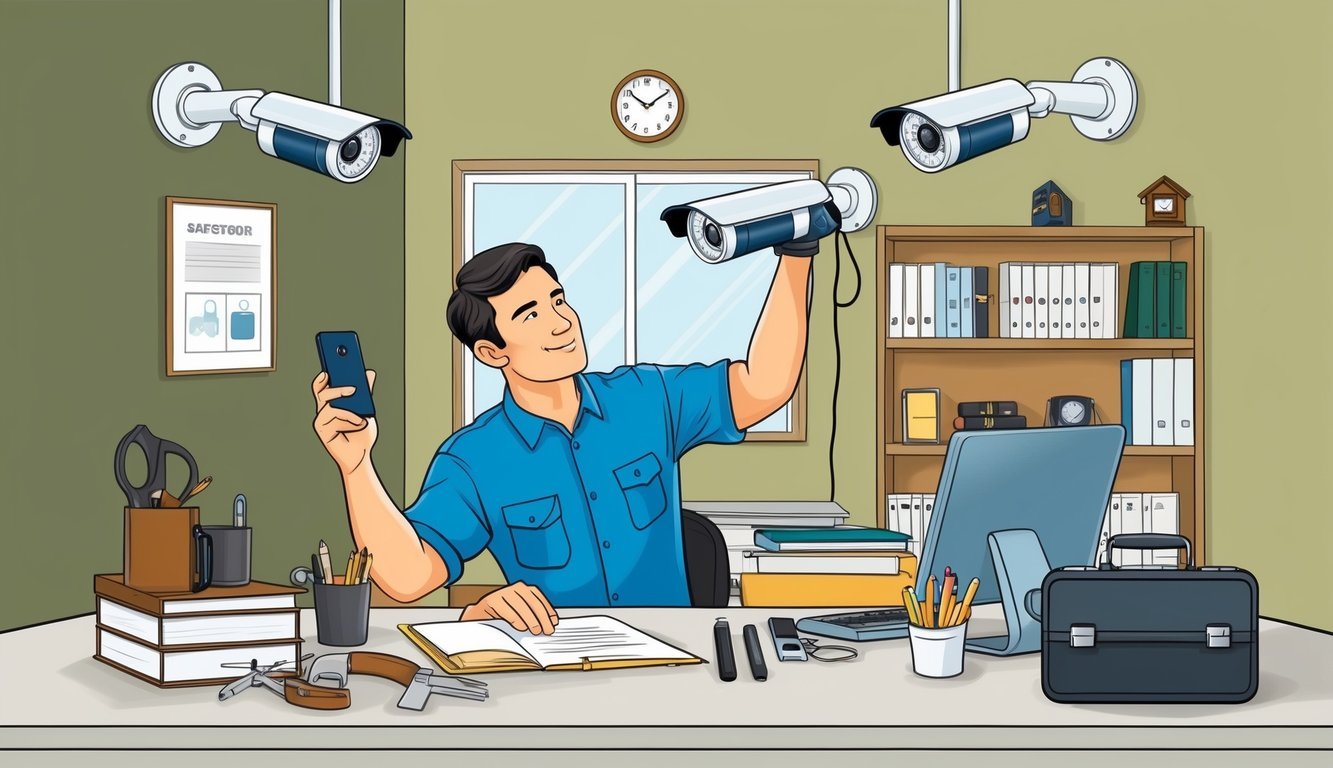
A side hustle can be a game-changer for your financial future.
It’s a way to earn extra income outside your main job, potentially leading to greater financial freedom and opportunities for investing.
Defining a Side Hustle
A side hustle is any work you do in addition to your primary employment.
It’s typically flexible, allowing you to pursue it in your spare time.
Side hustles can range from freelance writing to driving for ride-sharing services, or even starting a small online business.
You might choose a side hustle related to your main career or explore a completely different field.
The key is finding something that fits your schedule and skills.
Many people use side hustles to:
- Test new business ideas
- Develop new skills
- Pursue passions
Remember, a side hustle isn’t just a part-time job.
It’s an opportunity for you to be your own boss and potentially grow a new income stream.
Benefits of Extra Income Streams
Extra income from a side hustle can significantly impact your financial situation.
It provides a buffer against unexpected expenses and helps you reach your financial goals faster.
With additional income, you can:
- Pay off debts more quickly
- Build an emergency fund
- Invest in your future
Investing your side hustle earnings can accelerate your path to financial freedom.
You might put money into stocks, real estate, or even reinvest in growing your side business.
A side hustle also offers a sense of security.
If you lose your main job, you have another income source to fall back on.
Plus, it can be a stepping stone to full-time entrepreneurship if that’s your goal.
What Is a Personal Safety Consultant?
A personal safety consultant is a professional who helps individuals and organizations improve their safety practices and reduce risks.
They offer expert advice and guidance on various safety-related issues, from workplace hazards to personal security.
Role and Responsibilities
As a personal safety consultant, you’ll wear many hats.
Your primary duty is to identify potential safety risks and develop strategies to mitigate them.
You might conduct safety audits to spot hazards in workplaces or homes.
You’ll also create and implement safety protocols tailored to your clients’ needs.
This could involve designing evacuation plans or recommending security systems.
Training is another crucial aspect of your role.
You’ll educate clients on best safety practices, teaching them how to respond in emergencies or handle potentially dangerous situations.
Required Skills and Expertise
To succeed as a personal safety consultant, you’ll need a solid foundation in safety principles and regulations.
A background in occupational health and safety or a related field is often beneficial.
Strong analytical skills are essential.
You must be able to assess complex situations and develop practical solutions quickly.
Communication is key in this role.
You’ll need to explain safety concepts clearly to diverse audiences, from executives to frontline workers.
Staying updated with the latest safety technologies and regulations is crucial.
Continuous learning will be a significant part of your career.
Attention to detail and a proactive mindset are also vital.
You’ll need to anticipate potential risks before they become actual problems.
Identifying Your Niche in Safety Consulting
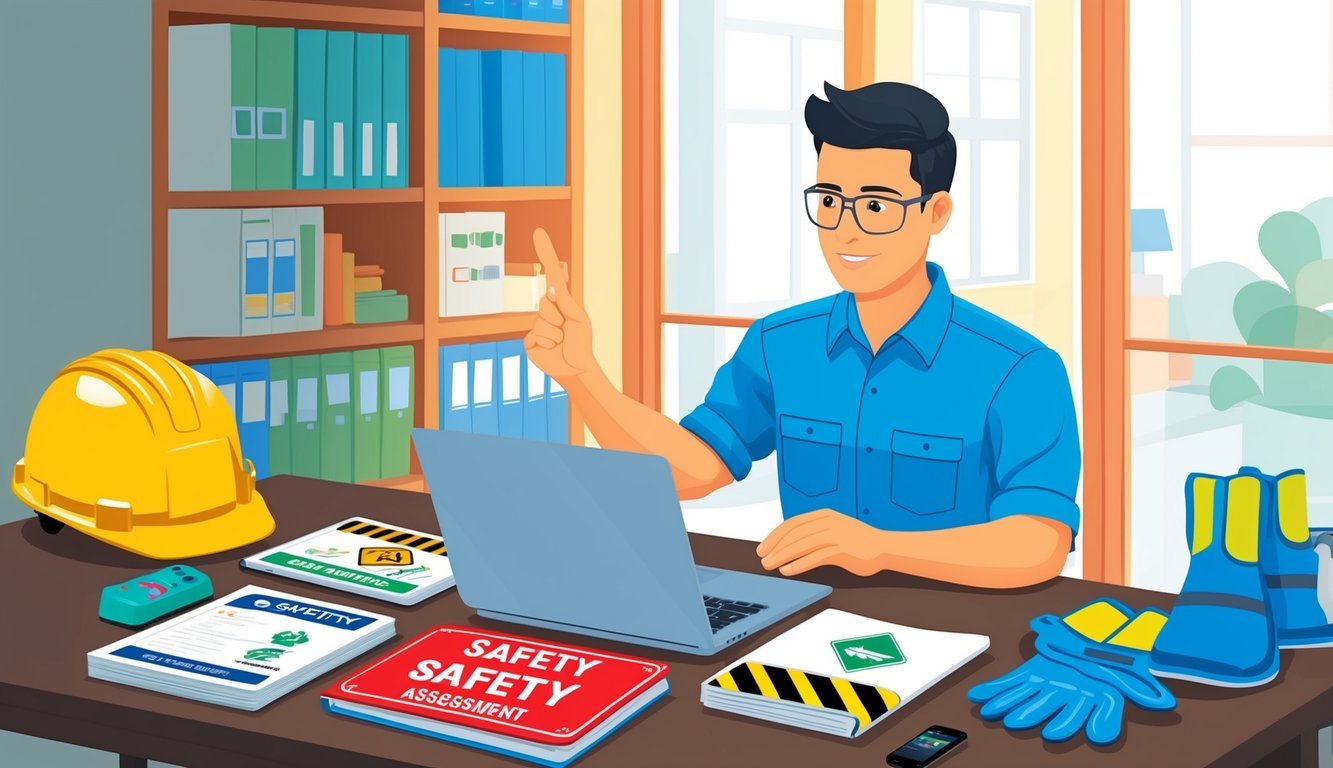
Finding your niche in safety consulting involves aligning your skills and interests with market demands.
By focusing on a specific area, you’ll differentiate yourself and attract clients who need your expertise.
Assessing Skills and Interests
Start by evaluating your strengths and passions in the safety field.
Are you skilled in workplace safety protocols? Do you excel at conducting risk assessments? Perhaps you have experience in a particular industry like construction or healthcare.
Make a list of your certifications, training, and past projects.
Consider which aspects of safety consulting you enjoy most.
This could be training employees, developing safety policies, or investigating incidents.
Your unique combination of skills and interests will help shape your niche.
For example, you might focus on ergonomics for office environments or specialize in safety technology implementation.
Understanding Market Demand
Research current trends and needs in the safety consulting industry.
Look for gaps in the market where your expertise can fill a need. Industry-specific safety consulting can be particularly valuable.
Check job boards and industry publications to identify in-demand skills.
Network with professionals in your target industries to understand their safety challenges.
Consider emerging areas like remote work safety or pandemic preparedness.
You might find opportunities in niche areas like:
- Environmental safety for sustainable businesses
- Safety compliance for small manufacturers
- Crisis management for educational institutions
By aligning your skills with market demand, you’ll position yourself as a go-to expert in your chosen niche.
Creating Your Personal Safety Consulting Services
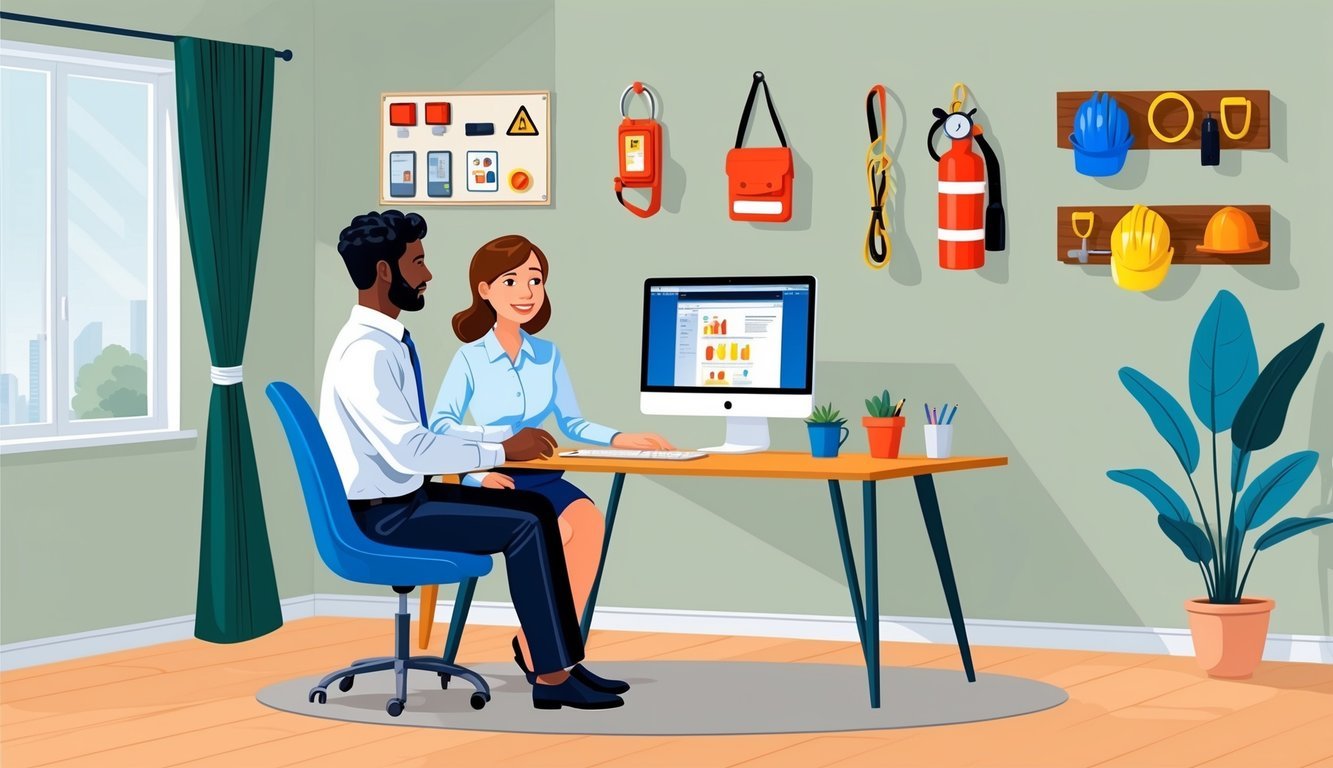
Launching your personal safety consulting side hustle involves defining your unique offerings and establishing a solid business model.
You’ll need to identify your target market and develop services that meet their specific needs.
Defining Your Service Offerings
Start by assessing your expertise and the safety needs of potential clients.
You could offer safety audits to identify hazards and recommend improvements.
Safety training programs are another valuable service to help companies educate their employees on best practices.
Consider specializing in specific industries or safety areas to stand out.
You might focus on workplace ergonomics, fire safety, or emergency preparedness.
Tailor your services to different client sizes.
For small businesses, you could provide basic safety assessments.
Larger companies might benefit from comprehensive safety management systems.
Setting up Your Business Model
Decide on your pricing structure.
You could charge hourly rates, fixed project fees, or retainer agreements for ongoing services.
Research industry standards to ensure your rates are competitive yet profitable.
Determine how you’ll deliver your services.
Will you work on-site with clients or offer remote consultations? Consider creating digital products like safety checklists or online courses to generate passive income.
Establish yourself as an expert by building a professional website and sharing safety tips on social media.
This can help attract clients and demonstrate your knowledge.
Network with other professionals and join industry associations to expand your reach.
Collaborating with complementary businesses, like insurance brokers, can lead to referrals.
Developing a Professional Image

Establishing a polished, trustworthy image is crucial for success as a personal safety consultant.
Your professional presence will help attract clients and build credibility in the field.
Crafting a Professional Website
Your website is often the first impression potential clients will have of your services.
Create a clean, user-friendly design that showcases your expertise.
Include a homepage highlighting your key offerings and a clear call-to-action.
Add an “About” page detailing your qualifications and experience in personal safety.
Create a services page outlining your consulting packages and rates.
Include client testimonials to build trust.
Consider adding a blog section where you can share safety tips and industry insights.
This demonstrates your knowledge and can help with search engine optimization.
Make sure your site is mobile-responsive and loads quickly.
Designing Marketing Materials
Develop a cohesive brand identity across all your marketing materials.
Start with a professional logo that conveys trust and security.
Use consistent colors, fonts, and imagery in your business cards, brochures, and social media profiles.
Create eye-catching flyers or brochures outlining your services and unique value proposition.
Consider developing a one-page “Safety Tip Sheet” as a free download to capture leads.
Design professional-looking presentation templates for client meetings or workshops.
Include your logo, contact information, and key safety statistics or tips.
Don’t forget digital marketing materials like email signatures and social media cover images.
These small details help reinforce your brand across all touchpoints with potential clients.
Marketing Your Consulting Business
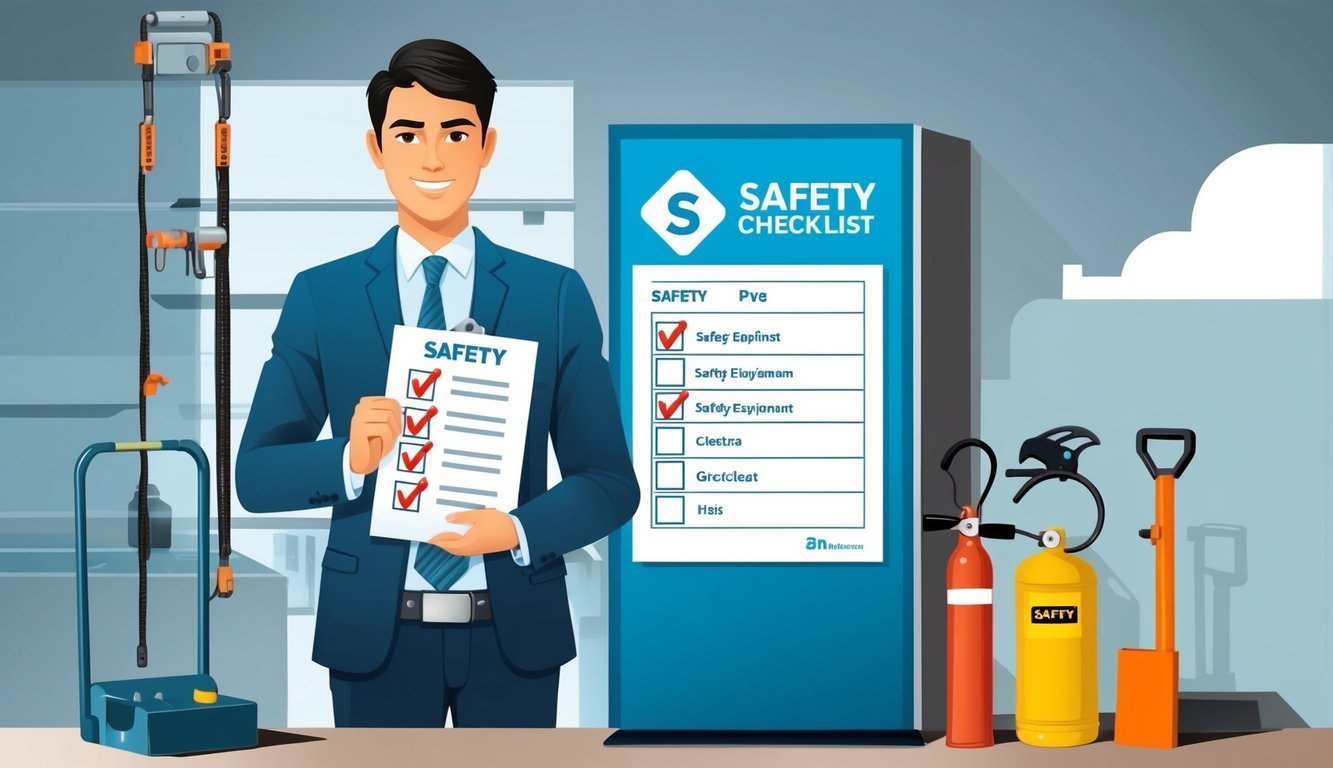
Effective marketing is crucial for growing your personal safety consulting side hustle.
You’ll need to leverage digital platforms and partnerships to reach potential clients and establish your expertise.
Leveraging Social Media
Social media platforms offer powerful tools to showcase your safety consulting services.
Create business profiles on LinkedIn, Facebook, and Instagram to connect with potential clients.
Share safety tips, industry news, and client success stories regularly to demonstrate your expertise.
Use targeted ads to reach local businesses and organizations in need of safety consulting.
Engage with followers by responding to comments and messages promptly.
Consider creating short video content on TikTok or YouTube to explain safety concepts visually.
Join relevant LinkedIn groups and participate in discussions to network with other professionals.
Use hashtags like #SafetyConsulting and #WorkplaceSafety to increase your content’s visibility.
Engaging in Affiliate Marketing
Affiliate marketing can provide an additional revenue stream for your safety consulting business.
Partner with safety equipment manufacturers or training course providers to promote their products or services.
Create detailed product reviews or comparison guides on your website or blog.
Share your affiliate links in your social media posts and email newsletters.
Be transparent about your affiliate relationships to maintain trust with your audience.
Consider starting a podcast or YouTube channel focused on safety topics.
Use these platforms to discuss industry trends and recommend relevant products or services.
Offer exclusive discounts to your followers using custom affiliate codes.
Track your affiliate sales and analyze which products resonate most with your audience.
Use this data to refine your marketing strategy and focus on the most profitable partnerships.
Networking for Success
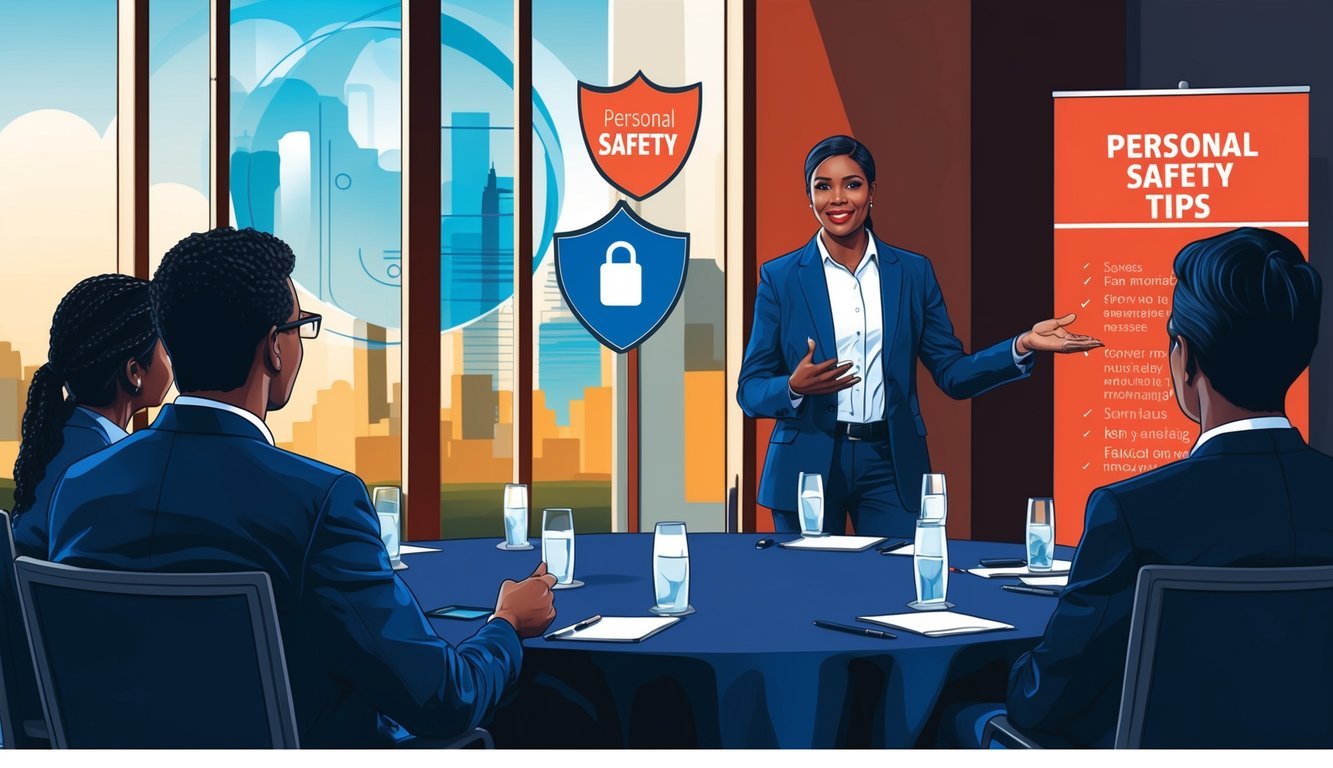
Building connections and leveraging client feedback are essential for growing your personal safety consulting side hustle.
These strategies can help you expand your reach and establish credibility in the field.
Building a Professional Network
Start by identifying key people in the safety industry to connect with.
Attend industry events, conferences, and workshops to meet potential clients and partners.
Join professional associations related to safety consulting.
These organizations often offer networking opportunities and resources to help you stay current in the field.
Use social media platforms like LinkedIn to engage with other safety professionals.
Share valuable content, comment on industry trends, and participate in relevant discussions.
Consider collaborating with complementary businesses, such as security firms or workplace wellness providers.
These partnerships can lead to referrals and expanded service offerings.
Utilizing Client Testimonials
Ask satisfied clients for testimonials after successful projects.
Their words can provide powerful social proof of your expertise and results.
Create a portfolio showcasing your best work, including client success stories and measurable outcomes.
This can help potential clients understand the value you provide.
Feature testimonials on your website and marketing materials.
Use brief, impactful quotes that highlight specific benefits clients have experienced.
Consider creating case studies that dive deeper into your problem-solving abilities.
These can demonstrate your approach and the tangible results you’ve achieved for clients.
Encourage clients to leave reviews on professional platforms or industry-specific directories.
Positive reviews can boost your visibility and credibility in the safety consulting field.
Managing Legal and Financial Aspects
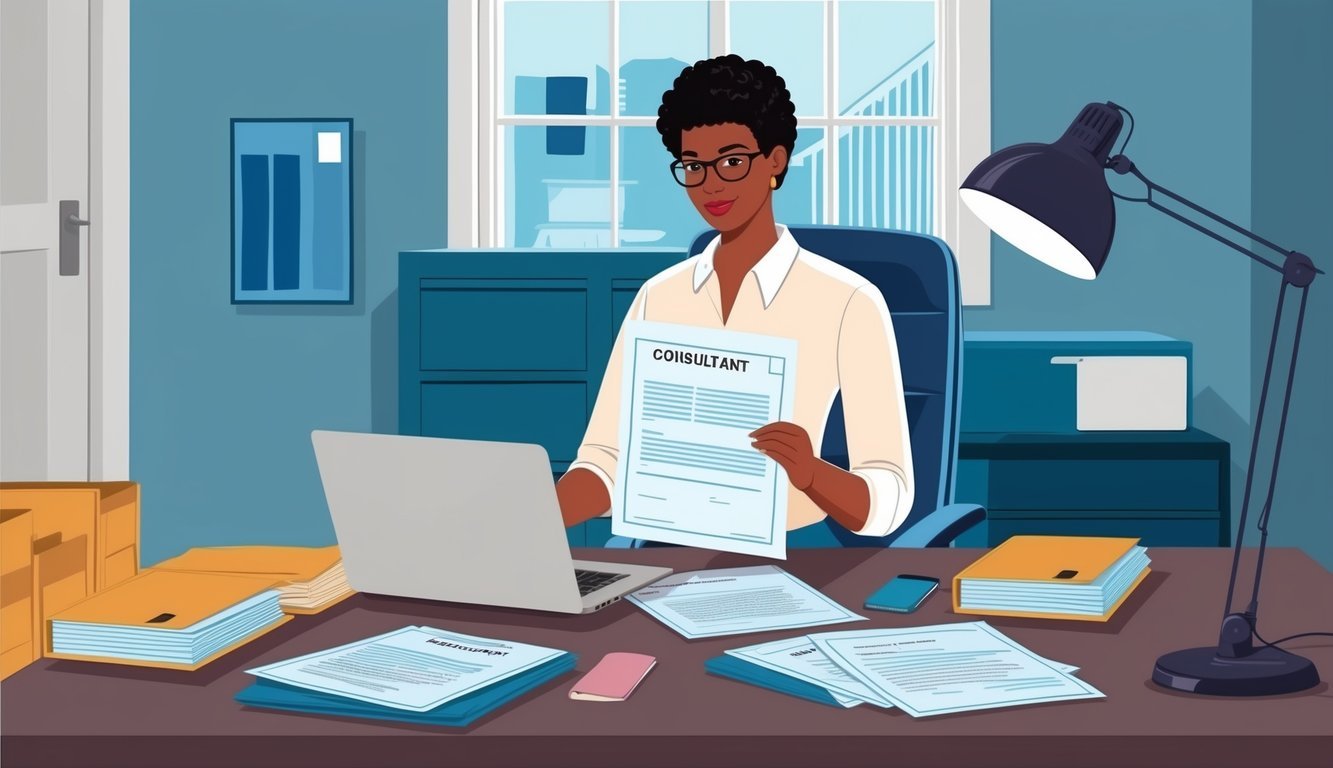
Setting up a personal safety consultant side hustle requires careful attention to legal and financial matters.
You’ll need to choose an appropriate business structure and understand the contracts involved to protect yourself and your clients.
Choosing the Right Business Entity
As a personal safety consultant, you should consider forming a limited liability company (LLC).
An LLC offers protection for your personal assets if your business faces legal issues.
It’s a flexible option that allows you to operate as a sole proprietor for tax purposes.
To set up an LLC:
- Choose a unique business name
- File articles of organization with your state
- Create an operating agreement
- Obtain necessary licenses and permits
Remember, each state has different requirements, so research your local laws carefully.
Understanding Contracts and Agreements
Clear contracts are crucial for your personal safety consulting business.
They protect both you and your clients by outlining expectations, responsibilities, and limitations.
Key elements to include in your contracts:
- Scope of services
- Payment terms
- Liability waivers
- Confidentiality clauses
Consider having a lawyer review your contracts to ensure they’re legally sound.
This initial investment can save you headaches down the road.
You might also need an employment contract if you plan to hire assistants or subcontractors.
This document should clearly define roles, compensation, and expectations to avoid misunderstandings.
Operating Efficiently as a Freelancer
As a personal safety consultant, managing your time and communicating effectively are crucial for success.
These skills will help you maximize productivity and build strong client relationships.
Time Management Techniques
Start by setting clear boundaries between your side hustle and other commitments.
Create a dedicated workspace and establish specific work hours.
This helps you focus and avoid distractions.
Use time-blocking to schedule your tasks.
Allocate chunks of time for different activities like client meetings, safety audits, and report writing.
Prioritize your workload by importance and urgency.
Tackle high-priority tasks when you’re most productive.
Don’t forget to schedule breaks to recharge.
Leverage technology to boost efficiency.
Use project management tools to track deadlines and automate repetitive tasks.
Time-tracking apps can help you bill accurately and identify areas for improvement.
Effective Communication Skills
Clear communication is essential for freelance safety consultants.
Start by actively listening to your clients’ needs and concerns.
Ask clarifying questions to ensure you understand their expectations.
Be responsive and timely in your communications.
Set realistic deadlines and keep clients updated on project progress.
If delays occur, inform clients promptly and provide revised timelines.
Tailor your communication style to each client.
Some may prefer detailed emails, while others opt for quick phone calls.
Be professional yet approachable in all interactions.
When presenting safety recommendations, use clear, jargon-free language.
Support your points with data and examples.
Be prepared to explain the reasoning behind your suggestions.
Measuring Success and Growth
Tracking your progress as a personal safety consultant is crucial for long-term success.
You’ll need to monitor key financial indicators and assess your position in the market to ensure your side hustle thrives.
Tracking Profitability and Milestones
To gauge your success, start by setting clear financial goals.
Track your income and expenses meticulously.
Use a simple spreadsheet or accounting software to record every penny earned and spent.
Calculate your hourly rate by dividing your total income by the hours worked.
This helps you determine if your side hustle is profitable.
Set milestone targets for client acquisition, revenue, or specific projects completed.
These benchmarks give you tangible ways to measure growth.
Remember, success isn’t just about money.
Consider your personal satisfaction and skills gained.
Are you enjoying the work? Are you becoming a better consultant?
Evaluating Competition and Market Position
Keep tabs on other safety consultants in your area.
What services do they offer? How do their rates compare to yours? This information helps you position yourself competitively.
Look for gaps in the market that you can fill.
Maybe you specialize in a niche area other consultants don’t cover.
This unique selling point can set you apart.
Monitor industry trends, too.
Are new regulations creating demand for specific services? Stay informed to capitalize on emerging opportunities.
Consider surveying your clients as well.
Their feedback can provide valuable insights into your strengths and areas for improvement.
Use this information to refine your services and grow your business.
Frequently Asked Questions
Starting a personal safety consulting side hustle requires careful planning, specific qualifications, and effective marketing strategies.
Here are answers to some common questions about launching and managing this type of business venture.
How can you start a side hustle as a personal safety consultant?
To start your personal safety consulting side hustle, first identify your niche and target market.
Develop a business plan outlining your services and pricing structure. Create a professional website to showcase your expertise and offerings.
Network with local businesses and organizations to build connections and find potential clients.
What are some tips for balancing a safety consulting side hustle with a full-time job?
Set clear boundaries between your full-time job and side hustle.
Establish dedicated hours for your consulting work outside of your regular job.
Use time management tools to stay organized and prioritize tasks.
Communicate openly with your employer about your side business to avoid conflicts of interest.
What qualifications are necessary to become a personal safety consultant?
Relevant certifications in occupational health and safety are essential.
A degree in a related field such as criminal justice or risk management is beneficial.
Practical experience in law enforcement, security, or emergency management adds credibility.
Stay updated on industry trends and regulations through continuous education.
How much can one expect to earn from a side hustle in personal safety consulting?
Earnings vary based on experience, location, and client base.
As a beginner, you might charge $50-$100 per hour.
With expertise and a strong reputation, rates can increase to $150-$300 per hour.
Project-based fees for comprehensive safety audits or training programs can range from $500 to several thousand dollars.
What services do personal safety consultants typically offer to clients?
Personal safety consultants offer a range of services.
These may include conducting safety audits, developing emergency response plans, and providing personal protection training.
You can also offer risk assessments for homes and businesses, cybersecurity consultations, and customized safety workshops for employees.
How can someone market their personal safety consultancy to attract clients?
Leverage social media platforms to share safety tips and showcase your expertise.
Attend industry events and local business networking functions.
You can also offer free workshops or webinars to demonstrate your knowledge and attract potential clients.
Additionally, partner with complementary businesses like security firms or insurance companies for referrals.


